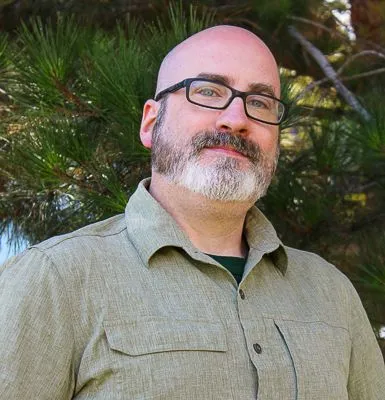History at York
The History Department wants students to gain insight into the connection between significant historical events and today’s complex world. Our courses develop each student’s appreciation for and understanding of the past and its impact on the present by engaging students in discussions, debates, simulations, primary and secondary sources, and research projects. Particular emphasis is placed on historical thinking skills, analysis, and interpretation. Innovative assignments challenge students to recreate historical eras through a variety of cooperative projects.
Requirements. In Grade 8, students enroll in Ancient & Classical Civilizations. In Grades 9-12, three years are required for graduation: Modern World History (Grade 9), United States History (Grade 10), and two semester-long departmental electives in either Grade 11 or 12.
Courses Available
This course tackles tough questions: What is a civilization and what can we learn from different civilizations? How do societies organize, unify, and share beliefs? What are the Connections between the long-distance past and the present? Beginning with the decline of the Roman Empire and the rise of feudalism, students explore medieval societies through project-based learning, simulations, debates, and primary document analysis. The course compares European development with the Golden Age of Islam, China, India, Mali, and the Americas, examining their remarkable achievements. Students then investigate the revolutionary transitions from the Middle Ages through the Renaissance, Reformation, Age of Exploration, and Scientific Revolution, culminating in debates about influential rulers of this era. Throughout, students learn to draw connections between past and present, using historical insights to consider where current global trends might lead.
This course offers students opportunities to gain insight into the connection between significant historical events and today’s complex world by using primary sources and student-centered inquiry projects. Particular emphasis is placed on historical analysis and interpretation, using multiple historical perspectives to build their understanding of events. Students explore the revolutionary forces that have shaped our modern world, beginning with the French Revolution and its global impact, including uprisings in Haiti and the Americas. The curriculum examines the Industrial Revolution, Victorian working conditions, and the expansion of voting rights, before analyzing how both World Wars fundamentally altered societies worldwide. Students will study the Communist revolutions in Russia and China and their evolution to the present day, alongside the rise of fascism in Italy, Spain, Germany, and Japan. Throughout, the course highlights positive role models who have made meaningful differences in challenging historical contexts, inspiring students to connect the past with contemporary global issues.
This course develops a balanced and comprehensive understanding of United States history, addressing political, economic, social, and cultural U.S. History from the pre-Columbian period to the present. Beginning with a deep inquiry-based analysis of indigenous cultures, the class progresses through the United States’ political and social development as a colony, state, empire, and world power. Using discussion-based and inquiry-based approaches, the course provides students with the opportunity to expand their understanding of U.S. history. Students strengthen their historical thinking skills through practice in all forms of student literacy – listening, speaking, reading, and writing – and advancement of skills in note taking, research and analysis of primary and secondary sources, analytical writing, and public speaking.
In US History-YAS, students are offered opportunities to broaden and enrich their academic experience by way of additional readings and activities and more extensive projects and assessments. US History-YAS is designed for students who have a strong interest in history, and who are ready and willing to do the work necessary to dig deeply into the material.
This course tackles three primary questions about the over 2000 years of Roman history: What did Rome achieve? How did (and do) representative governments rise and fall? How did Rome cope with evolving crises for so long? This semester-long course will introduce students to major Roman historical events and crises: the rise and fall of the Republic, the Civil Wars, the establishment of empire and general peace, and the emergence of crises from the third to the fifth centuries and the empire’s response. Students will be expected to closely analyze and interpret primary sources and complete a research paper addressing one of the primary questions of the course.
Debate has long been the foundation of a healthy democracy. Yet, when public discourse is taken over by talking heads shouting talking points, we lose the ability to resolve controversy. In a debate round, the formal presentation of two sides of a topic is adjudicated by common sense citizens with shared values. Good debaters research all facets of a topic, collaborate effectively with teammates, present their ideas clearly and compellingly, think on the spot, and (perhaps most importantly) listen to their opponents. In this course, students will learn all these skills while covering a variety of contemporary topics, including policing in the 21st Century, environmental policy, and our nation’s involvement in foreign affairs. This course will prepare students to distinguish between solid and spurious arguments, making them keen competitors at the podium as well as informed citizens and practitioners of healthy discourse.
This course is a one-semester introduction to the foundations, institutions, and processes of the government of the United States and its political systems. Students can expect to delve into the Constitution and its amendments, landmark supreme court cases, as well as current events to develop a comprehensive understanding of the complexity of governance and politics at the local, state, and federal levels. Special attention will be given to local, state, and federal elections if they happen to occur during the semester this course is run.
Introduction to Psychology is a survey course that aims to introduce the major content areas of the field of Psychology. The course covers theories, basic research methodologies, and current research in various subject areas. Additionally, students are challenged to articulate their understanding of foundational concepts and relate them to their own personal experiences. Upon completion of the course, students can expect to have an introductory understanding of key areas within psychology, including the historical origins of various psychology traditions, the complexities of consciousness, processes of learning and information processing, the intricacies of motivation and emotions, stages of human development, personality theories, the interplay between stress and health, therapeutic approaches, and psychopathology.
This course will look at the development, evolution, and challenges for democracies across Asia. Themes tackled will include defining and maintaining independence, challenges of integrating diverse and unique cultures, the impact of external forces and influences on maintaining democracy, governmental and non-governmental responses to internal and external crises. The course will focus on a selection of the following countries, depending on current events and student interest: India, Pakistan, Myanmar, Turkey, Israel, Indonesia, Japan, South Korea, Taiwan, Philippines, Nepal and Bhutan, Hong Kong. The culminating project will result in a self-published class magazine.
What is religion? What is spirituality? How do religious traditions impact society? Throughout this course, students can expect to explore many of the world’s religious religions and engage with the big questions that they seek to ask and answer. The religious traditions explored throughout the term are Indigenous, Jewish, Christian, Islamic, Hindu, Buddhist, and Chinese philosophical traditions. Through respectful engagement, we will learn to better understand the various functions of religion and look at how specific belief systems cultivate differing worldviews and cultures. By seeking to understand the views and beliefs of billions of religious practitioners, this course aims to promote compassion, religious literacy, and respect for humankind. Students will primarily do this work by engaging in careful reading and discussion of the world’s scriptures and through taking in a wide variety of perspectives from religious leaders, practitioners, and academic authorities.
This course acts as an introduction to microeconomics. The course covers individual and business economic activities, economic decision-making, supply and demand, consumer and production theories, competition, unemployment and labor. A key component of this course is the “start-up” project. Students will work in groups to start a manufacturing business, including everything from writing the business plan, sourcing the raw materials, manufacturing, advertising, and selling the final product to the York community.
This course is a comprehensive history of America from 1920-1980, focusing on domestic politics, American culture, and societal shifts. Film will be used as the primary texts in this course, some contemporary with the era they portray, others modern and reflective in nature. Students will practice both cinematic interpretation and historical literacy. Two major assignments offer some agency for students to display their understanding, but focus on historical context and cross-textual analysis.
Leadership
York’s curriculum in Academic Leadership begins with the 9th grade course, “Foundations in Leadership.” This class is designed to give 9th graders a strong, research-based foundation in the theories and principles of leadership. Students will engage with the most important understanding of leadership: Leadership isn’t a position, but a set of behaviors that can be observed, learned, and mastered. By examining the research behind these behaviors, aspiring leaders will consider how to best build the habits that lead to informed, effective, ethical, and intentional leadership. The course will combine elements of literary analysis, philosophy, ethics, behavioral science, and social sciences, allowing students to explore leadership through a multitude of lenses, and will offer regular opportunities to put their learning into practice through student-led discussions and activities.






